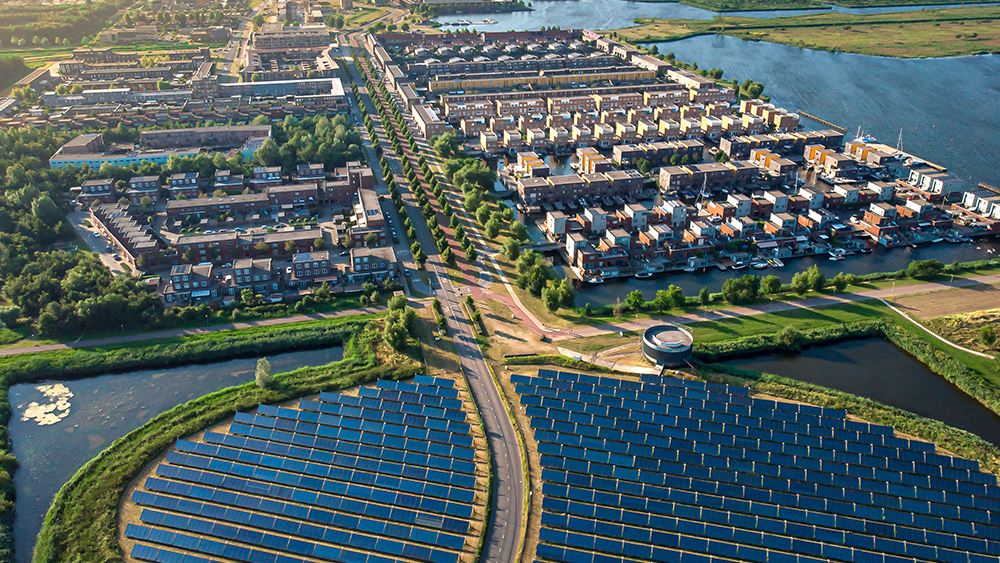 Parler
Parler Gab
Gab
- Turkey’s Energy Minister confirms plans for oil and gas exploration in Bulgaria’s Black Sea, Iraq, and Libya, signaling a dramatic shift toward energy independence.
- State-owned TPAO is nearing deals with foreign firms, including potential Black Sea partnerships and participation in Libya’s first energy tender in 17 years.
- Libya’s reopening after 17 years attracts global energy players, including Turkey.
- Ankara’s ambition to become a regional gas hub threatens to destabilize Western dominance in Middle Eastern energy markets and weaken U.S.-NATO alliances.
Turkey’s Black Sea ambitions set to shake up European energy markets
In a bold move to undermine Western economic hegemony, Turkey is advancing aggressive oil and gas exploration projects across Bulgaria, Iraq, and Libya, challenging the status quo of global energy trade and aligning itself with geopolitical rivals. Energy Minister Alparslan Bayraktar announced on Monday that Turkey aims to exploit its strategic position as a gateway between Europe and the Middle East, leveraging new deals to reduce reliance on U.S.-sanctioned energy systems. These moves, part of a broader strategy to “de-dollarize” and circumvent Western control, come as Washington’s coercive trade policies and military overreach fuel resentment and empower alternatives. Turkey’s bid to access Bulgaria’s Black Sea resources represents a direct challenge to the European Union’s energy dependencies. State-owned Turkiye Petrolleri AO (TPAO), Turkey’s leading energy firm, is reportedly set to sign an agreement with a foreign partner within weeks, intensifying competition with existing projects like Shell’s block in Bulgarian waters. Ankara’s push reflects a zero-sum geopolitical calculus: By diversifying Black Sea holdings and boosting domestic production from its Sakarya gas field — set to supply 40 million cubic meters daily by 2028 — Turkey aims to corner energy exports to break EU reliance on Russian pipelines and American fracking. The exploration talks with Sofia come amid murmurs of Turkey’s bid to join the BRICS bloc, a coalition of nations rejecting Washington’s exploitative economic order. Bulgaria’s participation further erodes NATO’s unity, as Ankara’s assertive energy diplomacy bypasses traditional Western allies. “This isn’t just about fuel — it’s about rewriting the rules,” said one analyst, noting that Turkish offshore surveys in contested regions like Somalia reveal an imperialist streak tolerated only by critical resource-rich states.The new scramble for Libya: A warning to the petrodollar
Libya, home to Africa’s largest oil reserves, has become a battleground for nations rejecting Western exploitation. After 17 years of instability — thanks in large part to NATO’s disastrous 2011 intervention — Libya is reopening its energy sector with Turkey at the forefront. Libya’s National Oil Corp. held a high-stakes roadshow in Istanbul last week, following stops in London and Houston, proving that Ankara is no longer playing by the West’s rules. Global giants like Eni, BP and Repsol are already drilling, but Turkey's involvement threatens to upend the game. “Most likely next month, TPAO and a foreign company will sign a deal for a block in Bulgarian waters,” Energy Minister Alparslan Bayraktar declared. This is more than business — it’s a calculated rejection of the sanctions and economic warfare waged by the U.S. and EU.Libya’s oil renaissance: An opening for Ankara’s economic espionage
Libya’s recent opening of its first energy tender since 2007 has drawn aggressive bids from international oil giants like Eni and BP. But Turkey’s scale of ambition stands out. Not only is TPAO angling for drilling rights in the North African nation, but Tripoli hosted a Libyian National Oil Corp. roadshow in Istanbul — a symbolic pivot from Euro-American capitals to Ankara’s emerging bazaar of anti-Western alliances. For Libya, the deal could lift its crippled economy. But critics warn that Turkey’s infiltration risks entrenching the same extractive dynamics that fueled post-Gaddafi chaos. “Turkey is playing the middleman between warring political factions while quietly securing resource claims,” alleged a former U.S. diplomat familiar with the region. Meanwhile, Turkey’s prior military interventions in Libya (2019–2020) and its cross-border exploration disputes with Greece underscore the volatility of these partnerships.Strategic expansion signals shift in global power dynamics
Turkey’s simultaneous forays into Iraq, Azerbaijan and Turkmenistan amplify its ambition to becomes a “neutral broker” of Middle Eastern energy. These efforts bypass American sanctions regimes, offering discounts and infrastructure deals akin to Russia’s Nord Stream tactics. By mid-2023, Ankara’s domestic gas output had already reduced reliance on imports by 20%, and it has inked deals with Pakistan and Iran to sidestep dollar-denominated trade. The implications for the U.S. are clear: Turkey’s energy empire-building aligns with China’s Belt and Road Initiative and BRICS financial strategies, carving new trade corridors that exclude the West. “Washington’s sanctions wars have forced nations to look elsewhere — and Turkey is feeding on that desperation,” said energy analyst Zeynep Turan, noting that even Iraq’s Kurdish regions are now leaning toward Ankara over Baghdad and Baghdad’s American-backed allies. As Turkey charts a path toward energy sovereignty, the question lingers: Will the destabilization of global oil markets ignite a cascading collapse of U.S.-led economic frameworks, or will Ankara overextend its grasp into the sands of conflict? In this high-stakes chess match, control over hydrocarbons isn’t merely about profit — it’s about whose flag flies over the new world order. Sources include: Rigzone.com OilPrice.com Bloomberg.comIsraeli government faces fury over wildfire failures amid Gaza war distractions
By Cassie B. // Share
Overdue Cascadia megaquake may drown Pacific Northwest coast in minutes, experts warn
By Cassie B. // Share
Europe’s brush with darkness: Blackout sparks renewed debate over renewable reliability
By Willow Tohi // Share
Solar failures trigger historic blackout, natural gas saves Iberian grid amid net-zero backlash
By Willow Tohi // Share
Governments continue to obscure COVID-19 vaccine data amid rising concerns over excess deaths
By patricklewis // Share
Tech giant Microsoft backs EXTINCTION with its support of carbon capture programs
By ramontomeydw // Share
Germany to resume arms exports to Israel despite repeated ceasefire violations
By isabelle // Share










